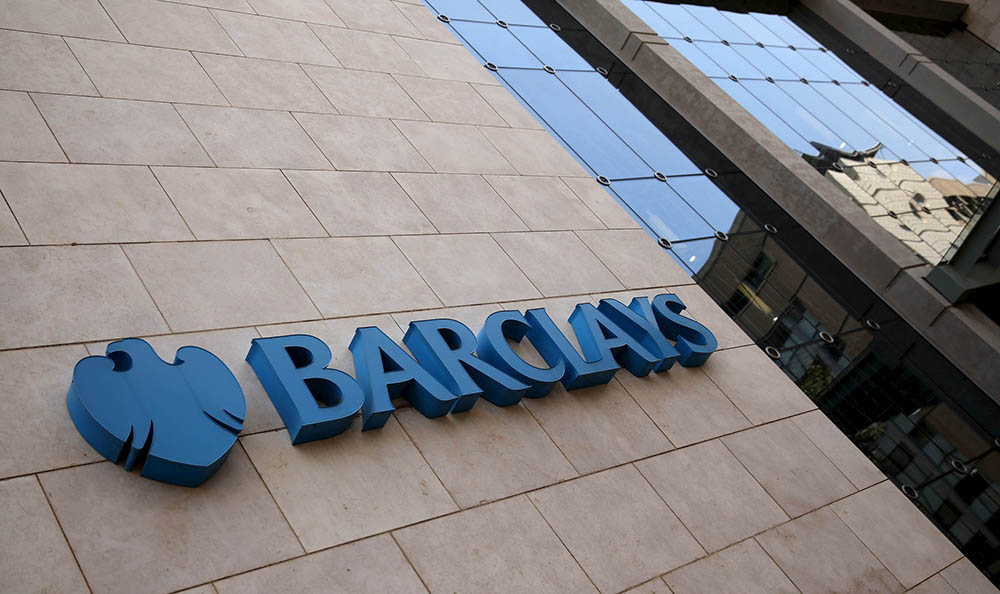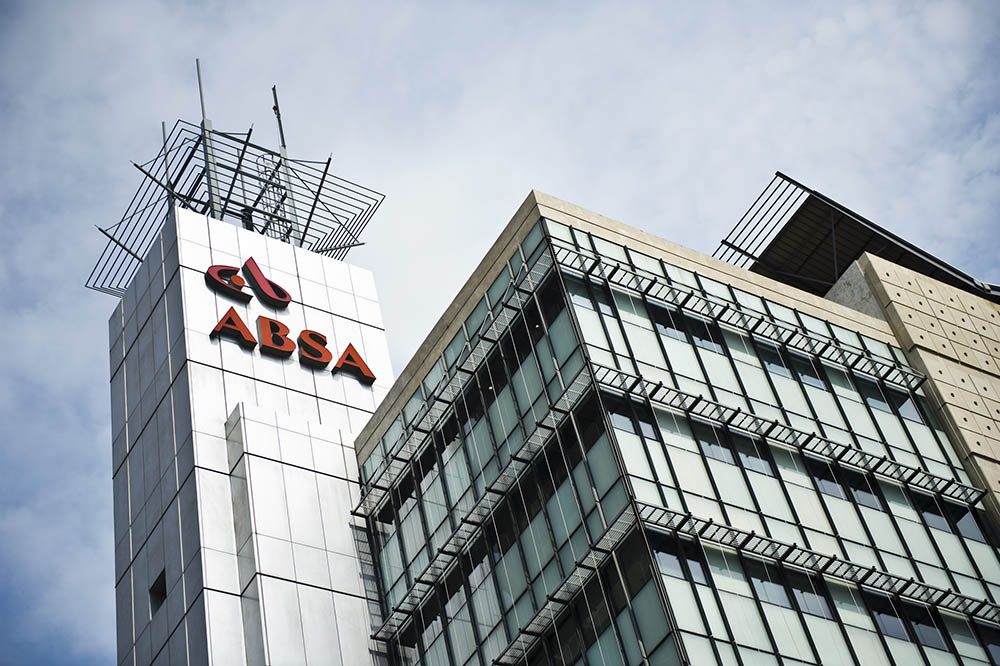New Barclays chief executive Jes Staley is expected to signal what the bank aims to do with its African operations when he presents his annual report in a few weeks’ time.
South Africa could be facing a massive disinvestment with global banking giant Barclays putting its Africa operations up for sale.
The Wall Street Journal reported this week that Barclays is going to disinvest from Africa by selling its 62% interest in JSE-listed Barclays Africa. The stake is currently valued at $4.1-billion.
The group has operations in 12 African countries, with 1 267 branches, a staff complement of 44 000 and 12-million customers. Nine million of these customers are with Absa.
Barclays is refusing to confirm or deny reports that it is about to sell all or part of its shareholding, but a Barclays Africa insider told the Mail & Guardian in November last year that Absa’s “Project Serengeti” was “abruptly stopped”. Project Serengeti is Absa’s internal code for the rebranding of all Absa branches as Barclays in 2016.
The insider said it was not clear what had brought the project to a halt.
Business Day reported in December that Project Serengeti was on hold, quoting Absa as saying the time was not right for a rebranding.
Barclays PLC must decide whether its capital is best deployed in Africa, amid slowing growth in the continent’s second-biggest economy, and a need to further shrink its balance sheet, according to Michael Rake, the bank’s former deputy chairperson, in an interview with Bloomberg published last week.
“Barclays has historically been in a very good position there, but is suffering in South Africa economically,” said Rake, who stepped down from the British bank’s board at the end of 2015. “The question becomes around priorities and capital.”
Commentators said Barclays is under pressure both from regulatory reforms and investors demanding better returns. The banking giant has had to pay a string of fines for activities such as illegal forex trading and for its role in rigging the key London inter-bank rate (Libor).
Barclays’s chairperson, John McFarlane, has been talking about focusing on core functions, although as recently as mid-year last year he saw its African operations as part of the core business.
Barclays, which acquired Absa in 2005, has been expanding its African operations for a century.
Meanwhile, earlier this month, Kenyan media reported that Barclays was shutting its Nairobi office in March, although Barclays denied it was leaving Africa.
Asked about the suspension of Project Serengeti, an Absa spokesperson this week said the South African bank was on record as saying that it would only accept a rebranding when the time was right.
“We have no current plans to rebrand our branches to Barclays from Absa,” said the spokesperson.
The Wall Street Journal reported that Barclays’s executives have concluded that being the majority owner of a sprawling African business no longer fits in with the bank’s strategy and that the bank is drawing up plans to sell some of its stake in Barclays Africa.
Approached to confirm that it was leaving the continent, a Barclays Africa spokesperson said it did not comment on market speculation.

Several industry stakeholders have said Barclays will likely struggle to find a buyer in the current market. (Siphiwe Sibeko, Reuters)
The banking giant will announce its annual results in just over a month and a strategic update from the group is also expected.
This is likely be the first time the market will get a clear indication of Barclays’s future under its chief executive officer, Jes Staley, who was appointed in October last year.
This week, several industry stakeholders said Barclays would probably struggle to find a buyer in the current market.
Kokkie Kooyman, of Sanlam Investment Capital Global, said it was not an ideal time for Barclays to sell its stake. “They came in at the top of the cycle and would be pulling out at the bottom. If they were to do it, it would be hell of a stupid.”
Standard and Poor banking analyst Matthew Pirnie said it was hard to see Barclays attracting an outright buyer and the banking giant was more likely to sell it off bit by bit.
“Where in the world are you going to find a buyer?” Pirnie asked. “It’s certainly not going to be a European or American bank.”
He said China was facing its own economic problems, which would probably rule out one of its large banks buying Barclays’s Africa stake.
Kooyman agreed that the Chinese banks are under pressure, but said perhaps one of the large Indian banks could be interested. He added that Barclays might only wish to sell a part of its share.
But if it wanted to free itself from the onerous conditions of regulators on the continent, which are imposed on it as it is the majority shareholder, it would probably have to reduce its shareholding to less than 25%.
But other analysts dismissed this, arguing that it would probably be an all-or-nothing deal.
A South Africa asset manager, who did not want to be named, said the decisions to sell or stay could both be justified, depending on whether the bank was taking a long- or short-term view.
“On the one hand, the Africa rising narrative has stalled,” he said. “There will be a number of years of taking pain. On the flip side, Africa is a multi-decade story, so maybe you bleed a little bit now and reap the fruits in 10 to 20 years,” he said.

Absa’s Project Serengeti – to rebrand all Absa branches as Barclays – was ‘abruptly stopped’ in November. (Delwyn Verasamy, M&G)
The asset manager said, if Barclays did divest in Africa, some would argue that it was a short-term knee-jerk reaction, but the forecast for African economies had deteriorated very rapidly over the past few months.
Pirnie said, with Africa’s economic outlook being downgraded, Barclays might not want the volatility of the African business.
He said the International Monetary Fund was currently supporting Ghana, Kenya was in economic trouble, and in South Africa the rand had fallen drastically.
A recent report on the 2016 outlook for the sub-Saharan African banking sector by Fitch Ratings put the outlook as negative.
The report said falling commodity prices, faltering gross domestic product growth, weaker currencies, greater political risks and other external factors were, to varying degrees, putting increasing pressure on the risk profiles of sub-Saharan Africa banks.
“As a result of strong and multiple challenges, we believe sub-Saharan African banks are likely to face slower growth, weaker earnings, worsening asset quality and tighter liquidity and capitalisation,” the report said.
Barclays Africa Group’s share price has fallen by 30% over the past year from R180 to R128. It has a price-to-earnings ratio of 5.94.
If Barclays is planning to divest under Staley, it would be seen as massive strategic turnaround from the days of former chief executive Bob Diamond, who was at the helm when the Absa transaction was concluded.
Diamond, who left Barclays in 2012, has started up his own company, Atlas Mara, which has been snapping up African banking assets. This has led to some speculation that he could be a potential suitor for the Barclays Africa Group.
But financial sector stakeholders said the Atlas Mara share price had not been performing well and the deal could be too expensive for Diamond.
“Atlas Mara is too small,” said Pirnie. “He would have to find a hell of a backer.”
Kooyman agreed, describing Atlas Mara as being in a smaller league.
Asked about the recent political pressure Absa has faced in South Africa from the Economic Freedom Fighters (EFF) and the ANC Youth League, financial sector stakeholders said it might have played a part in the bank’s thinking to leave the continent, but it would not have been the major reason.
In November last year, Julius Malema, the leader of the EFF, called for the transformation of the holding structure of Absa and threatened to occupy its branches to force it into taking action.
“[We will] occupy Absa, each and every branch of Absa, until we are given a practical programme of action on how the bank is going to intervene to resolve the inequalities in society,” Malema said at the time.
A week ago, the youth league attacked Absa and Barclays in a press statement, accusing them of “excessively and aggressively selling” the rand, which led to its large devaluation in the past month.
Its president, Collen Maine, closed his personal Absa account this week in protest.
Kooyman said that kind of political pressure may have played a role in any decision by Barclays.
“It’s not the deciding factor, but it is a factor,” he said.
But an asset manager, speaking on condition of anonymity, disagreed with him, saying statements like that came with the territory and Barclays should know that.